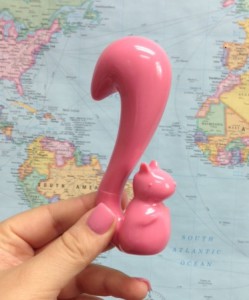 If the purple squirrel is a metaphor used by recruiters and HR to describe the perfect job candidate, then I would like to present the Pink Squirrel. As the Director of Membership for NPAworldwide, a recruitment network, I search for these each day. The Pink Squirrel is that hard-to-find recruiting agency that loves to build relationships with other recruiters and make split placements, and in the large world of recruitment agencies where business models differ greatly, it is quite difficult to qualify a firm to meet the standards of a split placement network. Here are five key qualifying factors I consider during my hunt for these pink squirrels.
If the purple squirrel is a metaphor used by recruiters and HR to describe the perfect job candidate, then I would like to present the Pink Squirrel. As the Director of Membership for NPAworldwide, a recruitment network, I search for these each day. The Pink Squirrel is that hard-to-find recruiting agency that loves to build relationships with other recruiters and make split placements, and in the large world of recruitment agencies where business models differ greatly, it is quite difficult to qualify a firm to meet the standards of a split placement network. Here are five key qualifying factors I consider during my hunt for these pink squirrels.
- They are independently owned, and do not belong to a franchise
The most successful firms we see in a split placement network are small to medium sized firms that are privately owned and have a handful of recruiters at most. These smaller firms originally began making split placements to compete against franchises by being able to utilize a network of trusted trading partners to fill the excess job orders they received from a client, or to have someone in another industry to be able to gain them expanded reach to a client. They could then approach a business with confidence knowing that their network gave them global contacts, as well as industry specialization without having to increase overheard by hiring more recruiters themselves.
- They are relationship based
What this means is that these pink squirrel firms LOVE socialization and meeting new people and developing more than a strict business relationship with their trading partners. In a split placement network, there are sometimes over 1,000 different personalities, and it takes times and interaction to realize who you may work best with, and who is going to share your business practices. What this means is that you need to pick up the phone and call firms who are in your industry trading group, or try to meet for coffee with the firm that may be located in your backyard. Life happens, and you never know when you may have a large client order come in, or a search that yields five star candidates and those trading partners will be the ones to increase your revenue.
- They have a split placement mentality
This means more than just wanting to make one split placement, or thinking they can make some extra money. Having this mentality means embracing the fact that half of something is much better than all of nothing. With this mentality, you can conduct stronger searches, knowing that those extra candidates you have found can get placed in splits. With this mentality you can take on more positions to remain a top recruiter for your client knowing that if you need help, you have trading partners able to quickly fill those roles.
- They are willing to expand nationally/internationally and to other industries
It is absolutely wonderful if you are a successful independent recruiter with a specific niche, and that does not mean you will not be successful with split placements, however the pink squirrel firm is one that is adaptive to shifts and expansion. For example, if someone specializing in just chiropractors in Chicago wants to join a split placement network, they should be open to expanding nationally or healthcare as a whole, or even out to a cross industry group in medical sales for example. The further you can stretch both of these realms, the larger your group of trading partners in a network will be, and you can still use your specific niche to be the “go to” of the network in that regards.
- They trust the network and their trading partners
This is the last point, but the most important. When joining a split placement network you have to be willing to TRUST. This means that a firm you have viewed as a competitor may be in that same network, and you have to trust that they are there for the same reason as you, to build relationships and make placements. Each firm and recruiter in these networks can learn a great deal from one another’s strengths and weaknesses, and it is important to want to share those. In the NPAworldwide network, there have been firms who are located in the same state who have ended up being the greatest partners by having one another as resources.